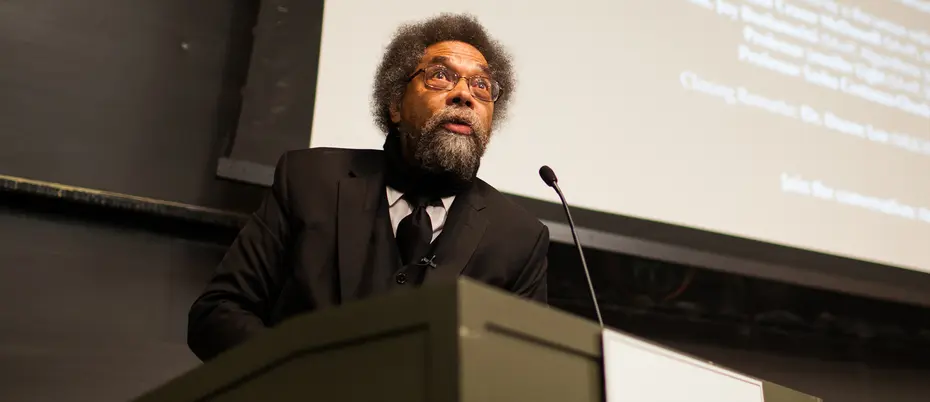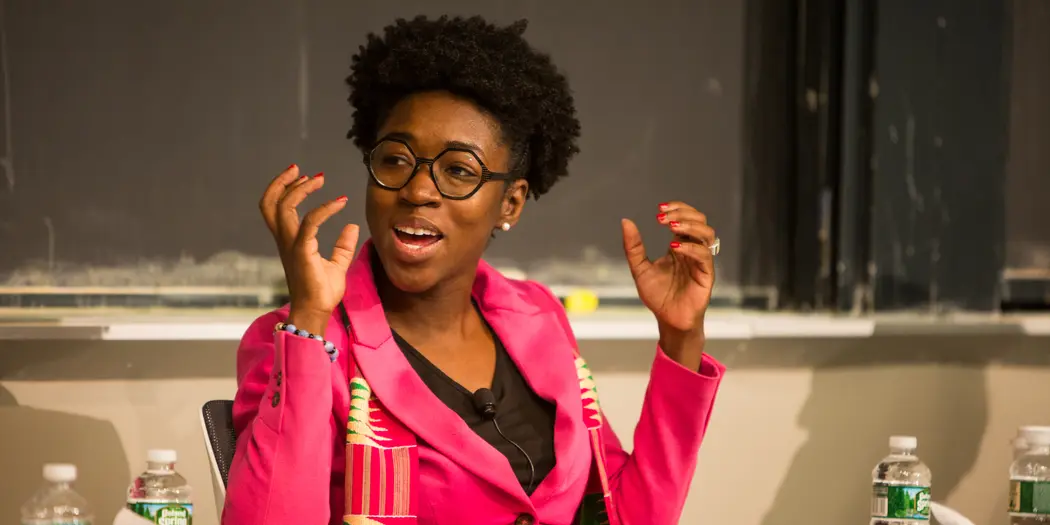Ethics
At MIT, fighting institutional provincialism
Technology isn’t immune from bias. But individuals working together can combat a “status quo that so often is preoccupied with reproducing itself.”
For a project in a graduate research course in the MIT Media Lab that focused on science fiction technology, Joy Buolamwini tried to build a “smart mirror” that would turn the viewer’s face into a different image. As she said during a Feb. 7 event sponsored by the Institute Community and Equity Office, some days you want to look in the mirror and see a lion, and some days you want to see Serena Williams.
There was a problem, though. The facial recognition software Buolamwini was using could not register black faces. This “coded gaze,” as she called it, meant her smart mirror would not work. Buolamwini dug deeper and learned that the most widely used benchmark for facial recognition software is 77 percent white and 83 percent male.
“There’s severe under-representation, and you wouldn’t even know it’s a problem,” she said. “And it was happening [at MIT], in this center of innovation.”
Buolamwini’s remarks illustrated an example of institutional provincialism, the idea that entities in a position of power — governments, corporations, universities, and even those defining standards for technology used every day — often hold onto narrow-minded ideas in order to preserve the status quo.
Cornel West, a philosophy professor at Harvard and the guest speaker for the event, said the American “empire” has a long history of institutional provincialism — much of it reflected in the Trump administration’s treatment of women, the working class, the LGBTQ community, immigrants, minorities, and the environment.
MIT’s Joy Buolamwini founded the Algorithmic Justice League to fight bias in machine learning.
Credit: Jake Belcher
Institutions themselves will struggle to change a “status quo that so often is preoccupied with reproducing itself,” West said, but individual voices can. The key is to focus on deep schooling — self-examination, the Socratic Method, and critical thinking — and not cheap education, he said. “Learn to turn your attention to things that matter, away from distractions,” he said. “We’ve got to be courageous. Lift your voice, but also listen.”In a panel following West’s remarks, speakers representing MIT provided examples of how members of the MIT community are speaking up.Sasha Costanza-Chock, associate professor of civic media, pointed to the student-led 116-day sit-in that protested the MIT endowment’s holdings in fossil fuel companies. In the end, the MIT endowment did not divest these holdings, but the university created an advisory committee on climate action and secured donations from fossil fuel companies for the MIT Energy Initiative.
“Students forced the administration’s hands,” Costanza-Chock said, even if it wasn’t the outcome that students had wanted. “Do we give up and throw up our hands? Of course not.”
Buolamwini formed the Algorithmic Justice League as a result of her MIT Media Lab project. This work fighting bias in machine learning earned her a $50,000 scholarship in last year’s Search for Hidden Figures contest inspired by the film of the same name.
Buolamwini also mentioned Bloomer Tech, a startup that uses smart clothing to gather heart data from women, who have been underrepresented in research about cardiovascular disease. The startup went through the delta v accelerator program in 2017. “If we have more inclusive innovators, we have more inclusive innovation,” she said.
The challenge, Costanza-Chock said, is fostering inclusive innovation that builds more than just profit into the corporate DNA. Otherwise, new innovators follow the same business model as old innovators.
“What if workers owned the platforms?” Costanza-Chock asked. “What if Uber was owned by the drivers?”





